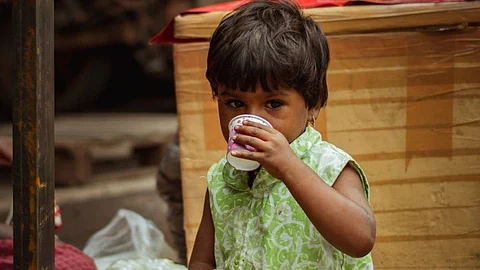National Girl Child Day: A Glance of How Far the Country Has Come in Terms of Laws to Safeguard the Girl Child
National Girl Child Day, every year commemorated on January 24, but why, what’s the need to celebrate the girl child, and why it has become mandatory for everyone to post on their social media walls as a reminder that it’s ‘Girl Child’ Day?Thousands of questions popped up when the news channel and other platforms stick ‘National Girl Child’ to their walls, and the answer to them lies with the acts such as crime, disrespect, discrimination, and patriarchy, and gender stereotyping, and so much more.Neither these acts would have taken place nor the need have arisen to cherish the girl child day.Establishing and commemorating is an another thing but how far India has come to safeguard the girls in the country that it could proudly celebrate and cherish the girl child day.A Glance at the Laws Established by the Country to Protect the Girl ChildUndoubtedly, India has to go a long way to make it a safe place for girls but for a matter of time, the country has implemented laws which would work in women’s interests.1. The Prohibition of Child Marriage Act, 2006 provides a legal remedy and criminal provisions to prohibit child marriage and protect children, as the girl child couldn’t able to shoulder the responsibilities at such a very small age.Recently, the government has tabled a bill considering raising the legal age of marriage for girls from 18 to 21 years, in order to guarantee them similar rights to their male counterparts.Additionally, the Supreme Court has ruled that daughters have an equal right to their father's self-acquired property if he has died without creating a will. 2. Female foeticides, and sex determined abortions, an important factor behind the gender inequality and the lack of female per male in the country. To prevent these brutalities, the Pre-Natal Diagnostic Techniques (Regulation and Prevention of Misuse) Act was put in place. The Act prohibits medical professionals from conducting or helping anyone perform pre-natal sex selections, and only registered clinics can buy pregnancy-related medical equipment. However, Rajasthan still considers a female giving birth to girl child as a taboo.3. To further safeguard the girls child, the laws including Sections 372 and 373 of the Indian Penal Code (IPC), the Court punishes those involved in buying and selling minor girls for prostitution. In such a scenario, the punishment for the convict can range from 9 to 12 years in prison. Although, an NCRB data revealed that 3,500 girl children were abandoned from 2011 to 2017. These abandoned girls fall prey to trafficking and land up in brothels and prostitution centres when they reach their teens.4. For enabling education to the girls, the Indian Government had come up with the unique 'Beti Bachao, Beti Padhao', however, reports later showed that over two-thirds of the budget allocation for the scheme was used for advertising purposes. Overall, the laws are intact, but the stock of increasing crime rate against the girls tells otherwise, and an alarm for the government to walk miles to make the country a safer and better place for the girls.


